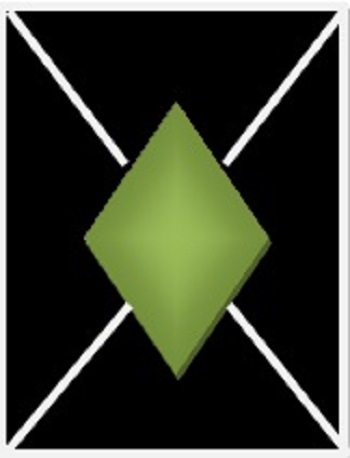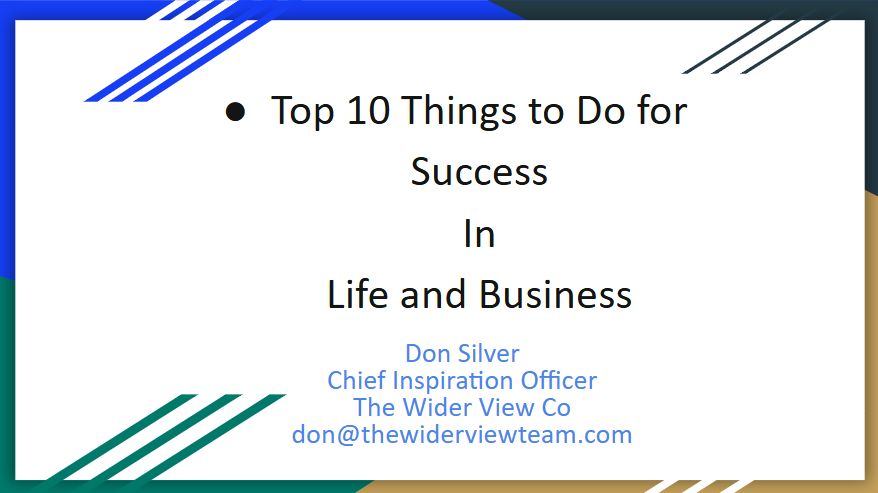Complete Business Plan
The Complete Business Plan included on this page offer a variety of ideas for planning a business. Pick and choose those items from each plan that best pretain to your business. For example, if you want to make your plan more formal, like for presenting to an institution for a business loan, you may want to add a cover page. If it is just for you, that may not be necessary. Taylor the business plan to suit your needs.
Howard University Small Business Development Business Plan
STARTING A BUSINESS
BUSINESS PLAN OUTLINE
Cover Sheet:
Name(s) of principles(s); name, address and phone # of business.
STATEMENT OF PURPOSE
TABLE OF CONTENTS
I. THE BUSINESS
A. Description of the Business
B. The Market
C. Competition and Feasibility Study
D. Location of Business
E. Management
F. Personnel
G. Application and Expected Effect of Loan or Investment
H. Summary
II. FINANCIAL DATA
A. Sources and Application of Funding
B. Capital Equipment and Furniture Lists
C. Projected Balance Sheet
D. Break-even Analysis
E. Projected Income Statements
* Three-year Summary
* Detail by Month, First Year
* Detail by Quarter, Second and Third Years
* Notes of Explanation
F. Cash Flow Projections
* Three-year Summary
* Detail by Month, First Year
* Detail by Quarter, Second and Third Years
* Notes of Explanation
G. For an Existing Business (also include the following documents)
* Profit/Loss Statements for Past Three Years
* Balance Sheets for Past Three Years
* Business Income Tax Returns for past Three Years
* Personal Income Tax Returns for Past Three Years
III. SUPPORTING DOCUMENTS
Personal resumés, job descriptions, personal financial statements, credit reports, letter of reference, letters of intent, leases, contracts, other legal documents, and anything else of relevance to the plan.
STATEMENT OF PURPOSE
A brief (less than 1 page) statement of the business plan objectives.
QUESTIONS
In General:
1. What is the purpose of this plan?
Will it be used as an:
- operating guide?
- financing proposal
2. What is the business structure (i.e., sole proprietorship, general partnership, limited partnership, C corporation, or Subchapter S corporation
3. Who is (are) the principle(s)?
4. What is to be done?
5. Why will it be successful?
For A Financing Proposal:
6. Who is asking for money?
7. How much money is being requested?
8. What is the money needed for?
9. How will the funds benefit the business?
10. How will the funds be repaid?
11. Why does the loan or investment make sense?
A. DESCRIPTION OF THE BUSINESS
GENERALLY EXPLAIN:
1. What the business is (or will be):
2. What market you intend to service, the size of the market, and your expected share;
3. Why you can service what market better than your competition;
4. Why you have chosen your particular location;
5. What management and other personnel are required and available for the operation; and
6. Why your investment or someone else's money (debt/equity) will help make your business profitable.
QUESTIONS:
1. Type of business; primarily merchandising retail, manufacturing, wholesale, or service?
2. What is the nature of the product(s) or service(s)?
3. Status of business start-up, expansion of a going concern, or take-over of an existing business?
4. Business form: sole proprietorship, partnership or corporation?
5. Who are the customers or clients?
6. Why is your business going to be profitable?
7. When will (did) your business open?
8. What hours of the day and days of the week will you be (are you) in operation?
9. What have you learned about your kind of business from outside sources (trade suppliers, banks, other business people, publications)?
NOTE: If yours is a seasonal business, or if the hours will be adjusted seasonally, make sure that the seasonality is reflected in your replies to the two previous questions.
FOR A NEW BUSINESS
10. Why will you be successful in this business?
11. What is your experience in this business?
12. Have you spoken with other people in this type of business about their experience, challenges and rewards? What were their responses?
13. What will be special about your business?
14. Have you spoken with prospective trade suppliers to find out what managerial and/or technical help they will provide?
15. Have you asked about trade credit?
16. If you will be doing and contract work, what are the terms? Reference any firm contract and include it as a supporting document.
17. Do you have letters of intent from prospective suppliers or purchasers?
FOR A TAKE-OVER:
18. When and by whom was the business founded?
19. Why is the owner selling it?
20. How did you arrive at a purchase price for the business?
21. What is the trend of sales?
22. If the business is going downhill, why? How can you turn it around?
23. How will your management make the business more profitable?
B. THE MARKET
Generally explain who needs your product or service, and why.
QUESTIONS:
1. Who exactly is your market? Describe characteristics: age, sex, profession,
income, etc., of your various market segments.
2. What is the present size of the market?
3. What percent of the market will you have?
4. What is the market's growth potential?
5. As the market grows, will your share increase of decrease?
6. How are you going to satisfy the market?
7. How will you attract and keep your share of the market?
8. How can you expand your market?
9. How are you going to price your service or product, to make a fair profit, and at the same time, be competitive?
10. What price do you anticipate getting for your product or service?
11. Is the price competitive?
12. Why will someone pay you price?
13. How did you arrive at the price? Is it profitable?
14. What special advantage do you offer that may justify a higher price? (You don't necessarily have to engage in direct price competition).
15. Will you offer credit to your customers (accounts receivable)? If so, is this really necessary? Can you afford to extend credit? Can you afford bad debts?
C. COMPETITION
QUESTIONS:
1. Who are your five nearest competitors? List them by name.
2. How will your operation be better than theirs?
3. How is their business: steady? increasing? decreasing? Why?
4. How are their operations similar and dissimilar to yours?
5. What are their strengths and/or weaknesses?
6. What have you learned from watching their operations?
7. How do you plan to keep an eye on the competition in the future?
D. LOCATION OF BUSINESS
1. What kind of building do you need?
2. What are the attributes and/or salient features of your present or desired business location?
3. Why is this a desirable area?
4. Why is this a desirable building?
5. Does the community around which you intend to locate the business show enthusiasm for you and your business?
6. What are the advantages and disadvantages of the site in terms of wage rates, labor unions, and labor availability?
7. How much space do you need?
8. Do you need a long-term or short-term lease?
9. Is the building accessible by public transportation?
10. Is the building close to customers or suppliers?
11. Is free or low cost parking nearby?
12. What are the state and local taxes, laws, utilities, zoning, and variables that may affect the location of you business?
13 How do you plan to keep an eye on any demographic shift in your area?
E. MANAGEMENT
QUESTIONS:
1. What is you business background?
2. How does your background/business experience help you in this business?
3. What management experience do you have?
4. Do you have managerial experience in this type of business?
5. Do you have managerial experience acquired elsewhere-whether in totally different kinds of business, or as an offshoot of club or team membership, civic or church work, etc.?
6. What weakness do you have and how will you compensate for them, i.e., will you hire employees or pay consultants who have management abilities/expertise that you don't have?
7. What education do you have (including both formal and informal learning experience) which have bearing on your managerial abilities or knowledge of the industry?
8. Personal data: age; where you live and have lived; special abilities and interests; and reasons for going into business?
9. Are you physically suited to the job? Stamina counts.
10. Why are you going to be successful at this venture?
11. Do you have direct operational experience in this type of business?
12. Who is on the management team?
13. What are the duties of each individual on the management team?
14. Are these duties clearly defined? how?
15. Who does what? Who reports to whom? Where do final decisions get made?
16. What and how will management be paid?
17. What additional resources have you arranged to have available to help you and your business (accountant, lawyer, et al.).
NOTE: A personal financial statement must be included as a supporting document in your plan if it is a proposal for financing. Also, include your resume as a supporting document.
F. PERSONNEL
QUESTIONS:
1. What are your personnel needs now? In the near future (3years)? In five years?
2. What skills must they have?
3. Are the people you need available?
4. Will your employees be full-time or part-time?
5. Will you pay salaries or hourly wages?
6. Certain employee benefits are mandatory. Find out what they are.
7. Will you provide additional fringe benefits? If so, which ones? Have you calculated the cost of these additional fringe benefits?
8. Will you utilize overtime? If so, you may be required by law to pay time and a half, double time, and/or other extra costs.
9. Will you have to train people for both operations and management? If so, at what costs to the business?
Developed by The Howard University Small Business Development Center
Click here for Business Plan for Home Business
Microsoft Office Power Point, Business Plan, is another great way to plan out your business. Simply follow their plan for writting out your business plan. Then it is in presentation form if you would like that for future times. Complete the pages as they are presented. Delete and change sections to suit your needs.
Return from Complete Business Plan to Plan a BusinessReturn from Complete Business Plan to Home Page


Click Here to Receive Updates and
One Step Ahead Newsletter.
You will also be Given the Opportunity to Become a Member of the Community Moving One Step Ahead called Reinventing Their Lives.
Retiring? Take this self evaluation.
Online Marketing Available for Those with New and Growing Businesses





